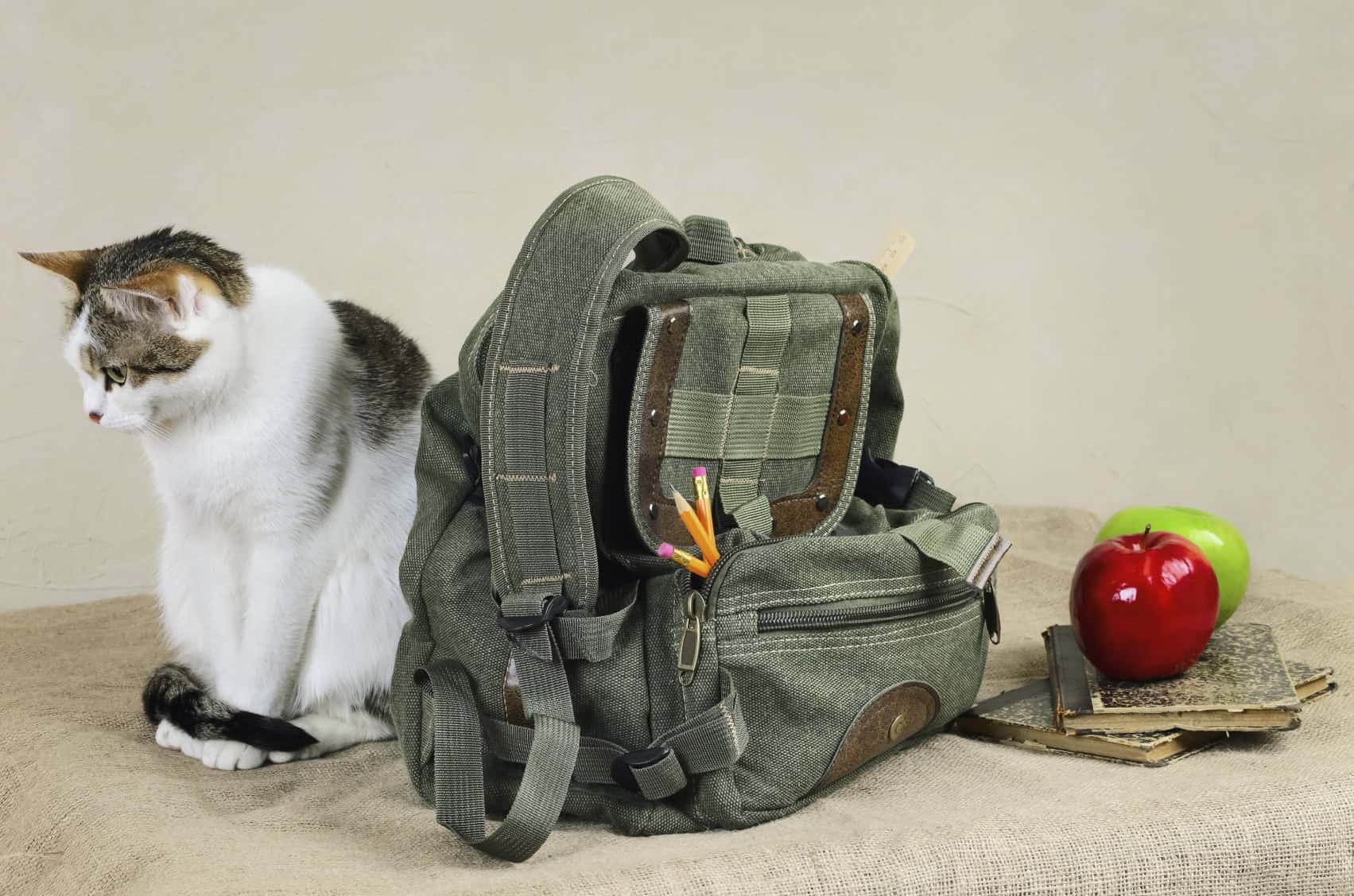Practical Ways to Avoid Pet Poisoning This Fall
 Accidental poisonings can occur throughout the year, but it’s not uncommon to see an increase in pet poisonings during the the fall. One reason is that our family pets may suddenly have easy access to specific toxic items in our kids’ backpacks once they are back in school.
Accidental poisonings can occur throughout the year, but it’s not uncommon to see an increase in pet poisonings during the the fall. One reason is that our family pets may suddenly have easy access to specific toxic items in our kids’ backpacks once they are back in school.
It seems that backpacks, which are often inadvertently left strewn about the floor, pack a variety of things that can pose serious risks for our furry friends. We want to make sure pet parents know what to look for so your pet will stay safe as back-to-school season gives way to the rest of the school year.
Pack it In and Put it Up
One of the best things you can do to keep your pet out of your kids’ backpacks is to keep them put away. Create a storage space for your child’s backpack so that it is off the ground and out of your pet’s reach. A closed closet or cabinet would be ideal, but a hook on the wall would also work as long as it is high enough.
You’ll also want to educate your children on why it’s important to keep their coats and packs picked up and put away. Let them know it’s not just about keeping things tidy, but a matter of your pet’s health and safety, as well. Let them know that the following toxins may be lurking within their possessions so that they can help keep the family pets safe and sound…
Foods To Avoid
Chocolate — Theobromine, the chemical found in chocolate, is toxic to cats and dogs. Depending on the size of your pet and the amount ingested symptoms can include vomiting, diarrhea, urination, hyperactivity, tremors and seizures. Coma and death are less common results of accidental chocolate poisoning but it can occur due to the abnormal heart rhythms brought on by theobromine. Please call us immediately if your pet got his or her paws on chocolate, especially dark chocolate.
Xylitol – This sweetener can be found in gum, mints or baked goods. Consumption causes extreme hypoglycemia (low blood sugar), which can ultimately damage your pet’s liver. Vomiting, lethargy and weakness are the first signs that your pet has ingested Xylitol, but symptoms can develop quickly into difficulty walking, collapse, or seizures. Immediate attention is required to help your pet get through Xylitol poisoning.
Grapes and Raisins – To avoid accidental poisoning keep this food off of counters and tables, and out of end-of-the-day lunch boxes. Even in small amounts, dogs can get quite ill from grapes and raisins, and the end result may be kidney failure. Symptoms include lethargy and depression.
Leftover Foods – A sandwich brought home in a backpack might contain avocado or onion. Avocado can cause vomiting and diarrhea in cats and dogs. Onion poisoning in cats causes anemia, weight loss, lethargy and breaks down red blood cells. Keep your child’s lunchbox clean and free of food waste.
Human Medications Commonly Found in Backpacks
ADD/ADHD Medications – ADHD medications are much more common these days. If your pet chomps down on even a small amount of these pills ,you may see life-threatening seizures, tremors, high body temperatures, and heart issues due to their stimulant potency.
Ibuprofen/Naproxen – These common pain relievers could easily be found rattling about in anyone’s backpack. Just one or two pills gobbled down by your pet could cause stomach or intestinal ulcers and possible kidney failure.
Acetaminophen – This drug, more commonly known as Tylenol, is often used to relieve pain in humans and children, but terribly toxic to pets, especially felines. Just one regular strength tablet could damage red blood cells in cats and dogs. Liver failure is a known side effect in dogs as well.
Antidepressants – Accidental Poisoning of any antidepressants can lead to lack of coordination, sleepiness and possible seizures. We have found that certain antidepressants are tasty to cats but swallowing just one pill can cause the life-threatening elevation of heart rate, blood pressure and body temperature.
Animal Health Hospital is Here to Help!
Remember to be on the lookout each and every day for any food or medication that could accidentally poison a pet–whether in a backpack, briefcase, purse or even around the house. Please let us know if you have reason to believe your pet ingested any of the above-mentioned foods or drugs. In many cases, early intervention plays a big part in your pet’s healthy outcome.
In a poisoning emergency, contact the ASPCA Poison Control Hotline: 888-426-4435.

